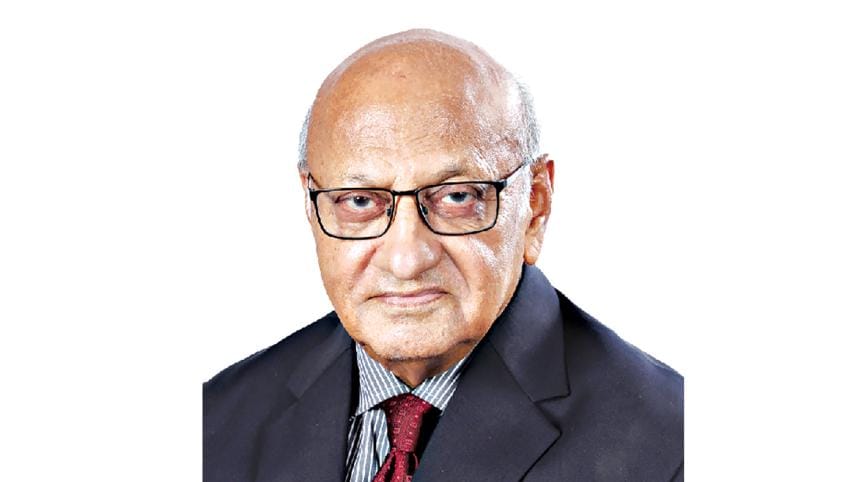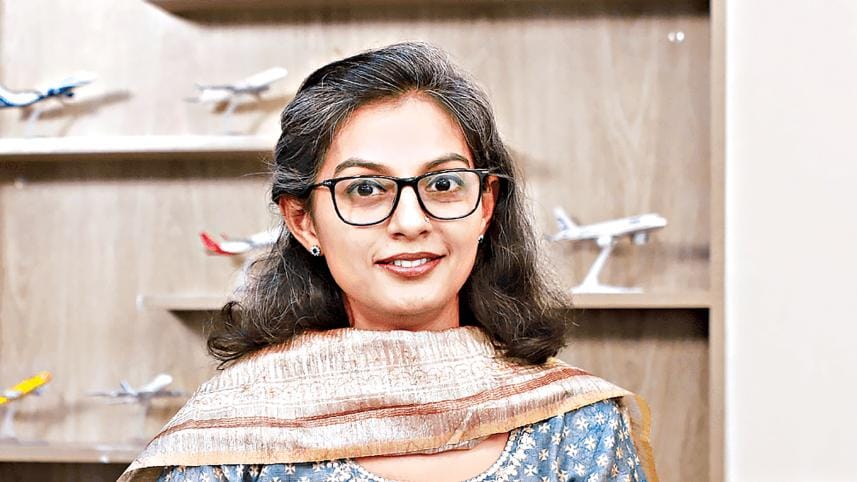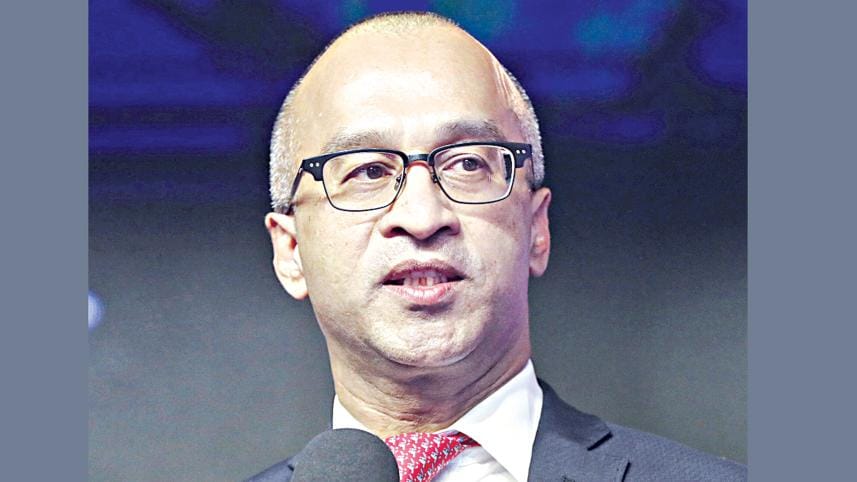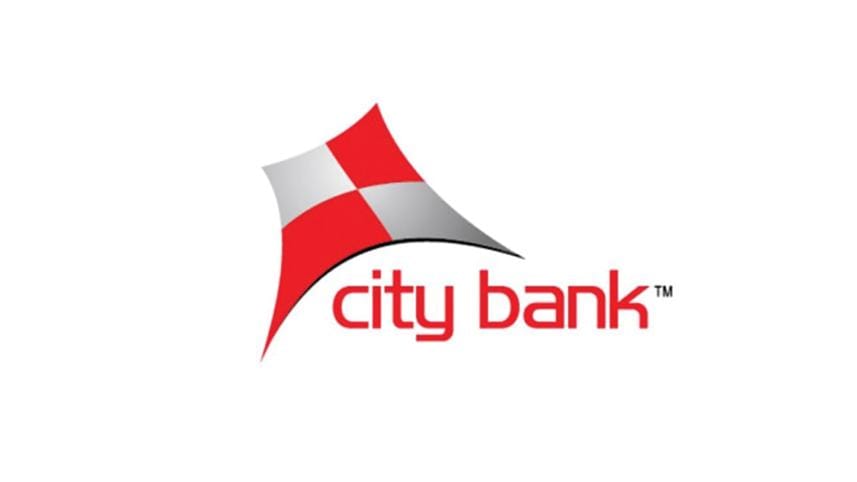The winners of 23rd Bangladesh Business Awards

M Anis Ud Dowla
Chairman, ACI Group
Lifetime Achievement Award 2024
M Anis Ud Dowla, chairman of Advanced Chemical Industries (ACI) Group, has received this year's Business Excellence Award – Lifetime Achievement for his transformative role in shaping Bangladesh's industrial sector at the 23rd Daily Star-DHL Business Awards.
Born in Faridpur in 1937, Dowla began his professional journey with Pakistan Oxygen, later British Oxygen, where he worked for 27 years and eventually became its first Bangladeshi managing director. In 1987, he joined Imperial Chemical Industries (ICI) as managing director of its Bangladesh operations.
His defining moment came in 1992 when ICI decided to divest from Bangladesh. Dowla led a successful management buyout, giving birth to ACI. Under his stewardship, ACI grew from a modest enterprise with 230 employees and a turnover of Tk 8 crore into a diversified conglomerate with more than 15,000 employees and annual revenues exceeding Tk 5,000 crore.
Dowla's vision combined multinational management discipline with entrepreneurial adaptability. ACI became the first Bangladeshi company to secure ISO 9001 and ISO 14001 certifications. It also pioneered iodised salt production and modern organised retail through its Shwapno chain. Today, the company is a leader in pharmaceuticals, consumer goods, and agribusiness.
Throughout his career, Dowla emphasised ethical practices and long-term value creation. He often likens business to planting a tree, saying: "Unless your roots become strong, you cannot grow big." He has consistently discouraged short-term greed, urging young entrepreneurs to prioritise integrity, quality, and sustainable market-building.
Now 88, Dowla continues to guide ACI with a focus on professionalisation and national development. His legacy of resilience, discipline, and integrity remains a benchmark for Bangladesh's corporate leadership, inspiring future generations to pursue growth rooted in responsibility and vision.

Ahsan Khan Chowdhury
Chairman and CEO, Pran-RFL Group
Business Person of the Year 2024
Ahsan Khan Chowdhury, chairman and CEO, Pran-RFL Group, is a pioneering figure in Bangladesh's business landscape. Under his leadership, a small family-owned agro-processing venture has grown into one of the country's largest and most diversified conglomerates, with over 6,000 product lines, 167,000 employees, and an annual turnover exceeding $3 billion.
Chowdhury joined the business in 1992, leaving his studies in the United States to support his father, Maj Gen (retd) Amjad Khan Chowdhury, founder of Pran Group. He carried forward his father's vision of building value-added industries rooted in Bangladesh's agricultural strength. What began with processed pineapple and local produce has evolved into an industrial powerhouse spanning food, plastics, appliances, bicycles, and more.
A strong advocate of rural empowerment, Chowdhury has shifted industrial development beyond urban hubs like Dhaka and Chattogram, investing in regions such as Bhola to create jobs and uplift communities. His goal—to generate 1 million jobs and help reshape Bangladesh's rural economy.
Pran-RFL Group now exports to over 145 countries, earning $500 million annually in export revenue. Chowdhury emphasizes quality, trust, and adaptability to global consumer needs as key to their success. Diversification and technological integration have also fortified the group's resilience and global competitiveness.
Looking ahead, Chowdhury envisions turning Pran-RFL Group into a $25 billion company within two decades. He continues to champion ethical business practices, youth leadership, and smarter industrial policies.
His message to young Bangladeshis is clear— to stay, build, and believe. With bold ambition and deep national pride, Ahsan Khan Chowdhury is not just building a business empire—he's helping redefine Bangladesh's future.

Sadia Haque
Co-founder and CEO, ShareTrip
Outstanding Woman in Business 2024
Sadia Haque, the co-founder and CEO of ShareTrip, is a trailblazer in Bangladesh's travel-tech sector. Leaving behind a successful corporate career with roles at Grameenphone, Nokia, Banglalink, and BBC World Service Trust, she chose the uncertain path of entrepreneurship to solve a deeply personal pain point—making travel simpler, smarter, and more accessible for all.
Sadia and her husband, Kashef Rahman, began their journey in 2014 with "Travel Booking Bangladesh", initially offering offline travel services. Driven by passion and first-hand experience with the hassles of low-budget travel planning, they envisioned a fully digital platform. In 2019, they rebranded as "ShareTrip", launching Bangladesh's first full-stack digital travel solution with apps, website, and bundled services including flights, hotels, and tours.
Despite initial resistance from a market dominated by offline agents, ShareTrip stood out by offering user-centric innovations such as gamification, loyalty programmes, and localised service bundles. The COVID-19 pandemic, while devastating, became a turning point—accelerating digital adoption and leading to the launch of ShareTrip's B2B platform and hotel management system, ST Rooms.
Under Sadia's leadership, ShareTrip has raised over $11.5 million, expanded into fintech with "STPay", and entered international markets with a branch office in Dubai. The company now boasts over 1.5 million app downloads and multiple industry awards, including World Travel Awards' Leading Online Travel Agency (2019–2024).
As a female tech founder, Sadia has broken barriers in a male-dominated industry, proving that grit and innovation can drive transformation. Today, she remains a strong voice for regulatory clarity, startup support, and digital inclusion in Bangladesh.
Her journey is not just about travel—it's about building an ecosystem, embracing change, and turning passion into impact.

SM Mahbubul Alam
Managing Director, Walton Hi-Tech Industries
Walton Hi-Tech Industries PLC has emerged as a symbol of industrial transformation in Bangladesh, turning a once fully import-dependent electronics market into a thriving hub of local manufacturing. Founded in the early 2000s by SM Shamsul Alam and his brothers, Walton began with a vision inspired by their father—to serve the nation by creating jobs and reducing reliance on imports.
Initially facing challenges like a lack of skilled engineers and technical expertise, Walton invested heavily in workforce training, bringing in international experts to build local capabilities. By 2008, Walton began manufacturing refrigerators and home appliances locally—a groundbreaking move in a market long dominated by foreign brands.
Over the years, Walton has diversified its product line to include televisions, smartphones, motorcycles, compressors and lifts. It now meets 60 percent to 70 percent of the domestic demand for appliances and exports to over 50 countries under its own brand name, making "Made in Bangladesh" a mark of quality in electronics.
Walton's strategic vertical integration and focus on affordability have helped it capture the middle-income segment, making TVs and refrigerators household essentials across the country. Its success has spurred industrial diversification beyond garments, creating ripple effects in jobs, local supply chains, and skills development.

Despite macroeconomic challenges and profit dips due to currency devaluation, Walton remains resilient—with sales of Tk 4,597 crore in the first nine months of FY25 and a strong R&D team of over 1,000 engineers driving innovation.
Today, Walton stands not just as a market leader, but as a cultural force—shifting mindsets about local technology and proving that Bangladeshi companies can compete globally. Its journey reflects the "wind of alteration" it represents: a determined push to redefine what's possible in Bangladesh's industrial future.

Mashrur Arefin
Managing Director and CEO, City Bank
The City Bank, once a problem bank, has now become one of the top lenders in the financial sector. For over four decades, the bank has been a pillar of innovation in the sector.
The top lender was established in 1983, when 12 visionary entrepreneurs took the bold step of founding Bangladesh's first private commercial bank at a time of great uncertainty.
On March 27 of that year, the bank opened its first branch on Bangabandhu Avenue, marking the start of a journey that would help shape the country's private banking sector.
According to Mashrur Arefin, managing director and CEO of City Bank, by 2006–2007 non-performing loans (NPLs) were rising, deposit growth had slowed, and Bangladesh Bank had even appointed two observers to its board.
That intervention opened the eyes of the second-generation sponsor directors and pushed them to feel the urgent need for reform, he added.

The private commercial bank has been operating for more than 42 years. With an 18.6 percent rise in total assets, 25.8 percent growth in deposits, and an 11 percent increase in loans and advances, the bank demonstrated remarkable financial resilience.
The bank's pioneering role in financial inclusion was further cemented through its extensive agent banking network, innovative SME financing, and strong commitment to gender-focused banking solutions.
In terms of profit and tax performance, City Bank leads among the banks analysed, with a profit after provision and taxes of Tk1,085 crore for 2024.
As of May 2025, the bank employs a total of 7,400 regular employees across its banking network and corporate functions.
Until 2024, the lender's total deposit stood at Tk 51,420 crore against Tk 44,497 crore as loans and advanced.



 For all latest news, follow The Daily Star's Google News channel.
For all latest news, follow The Daily Star's Google News channel.
Comments